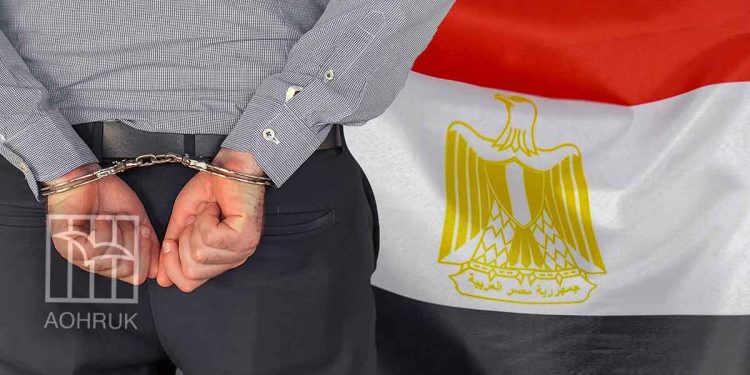After several months of enforced disappearance, 20 Egyptian detainees appeared at the Supreme State Security Prosecution, which has ordered their remand in custody for 15 days pending investigation.
The detainees include Hassan Saad Al-Sawwaf, a former Shura Council member from Monufia Governorate, alongside Ahmed Nageh Ridi, Ahmed Nabil Shehbar, Ismail Abdelhady Mohamed, Badawi Al-Sibai Asal, Tamer Ibrahim Mahmoud, Jihad Al-Sayed Tawfiq, Ziad Osama Mohie, Omar Abdelmonem Saber, Kilani Abdelkader Abdelaal, Mohamed Ibrahim Al-Shafei, Mohamed Ahmed Azmi, Mohamed Al-Sayed Hanafi, Mohamed Hamdi Qataqat, Mohamed Abdelhafiz Hassan, Mohamed Kamel Hamza, Hammam Masoud Abdelkawi, Walid Mahmoud Abu Zeid, Yasser Abdelwanis Abdelsalam, and Yasser Mustafa Mohamed.
The charges levelled against them reflect a well-documented pattern of politically motivated prosecutions, with accusations including “spreading false information,” “membership of a terrorist organisation,” “misuse of social media,” and “incitement to violence”. Egyptian authorities have long used these vague and overbroad charges as a means to suppress political dissent and silence opposition voices.
This development comes against the backdrop of extensive documentation by Egyptian and international human rights organisations of the systematic use of enforced disappearances in recent years. The United Nations High Commissioner for Human Rights (OHCHR) has previously reported that disappeared individuals in Egypt have been subjected to torture, ill-treatment, and coercion into signing false confessions while held in undisclosed locations outside the protection of the law.
Despite Egypt’s obligations under the Convention Against Torture, the authorities continue to flout fundamental legal safeguards. Article 54 of the Egyptian Constitution provides that any person deprived of liberty must be brought before a judicial authority within 24 hours—a safeguard routinely disregarded in enforced disappearance cases.
Furthermore, Article 9 of the International Covenant on Civil and Political Rights (ICCPR) explicitly prohibits arbitrary detention, while Article 5 of the Universal Declaration of Human Rights affirms that no one shall be subjected to torture or cruel, inhuman, or degrading treatment. Numerous testimonies from survivors of enforced disappearance in Egypt have corroborated the systematic use of such abuses in detention facilities operated by the security forces.
The practice of forcibly disappearing individuals before formally charging them with politically motivated offences constitutes a grave violation of international human rights law. It further illustrates the intensifying crackdown on dissent in Egypt, where the judicial system has increasingly been used as a tool of repression rather than an instrument of justice. With domestic avenues for redress failing to provide accountability, sustained international pressure and diplomatic engagement remain essential to compel the Egyptian authorities to cease these violations and immediately release all those subjected to arbitrary detention.





























